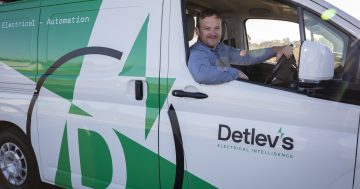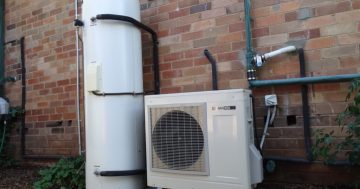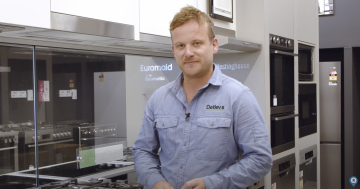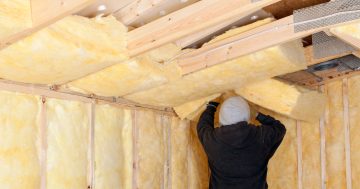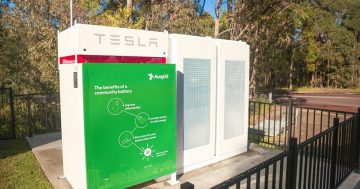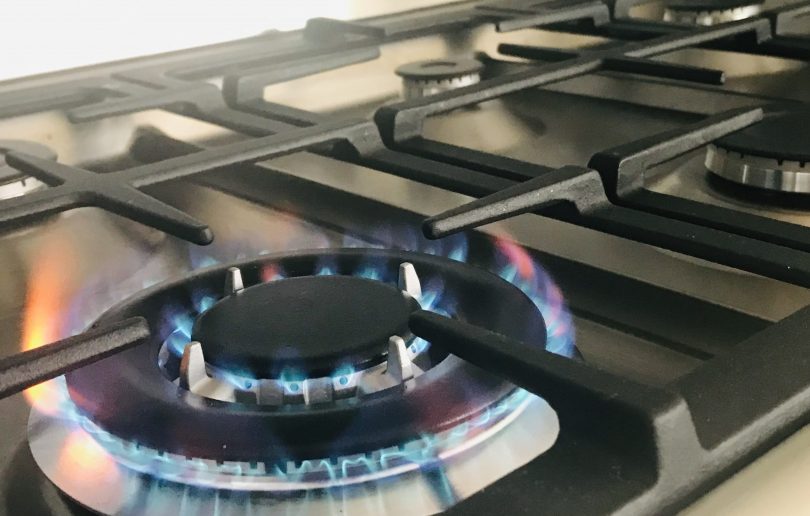
Homeowners are swapping gas cooktops for more energy efficient electrical appliances under the ACT Government’s Sustainable Household Scheme. Photo: Katrina Condie.
Climate-conscious Canberrans are taking advantage of the ACT Government’s Sustainable Household Scheme and making the switch to more ecofriendly appliances and energy systems.
Under the scheme, eligible homeowners can borrow up to $15,000 interest-free to purchase energy efficient products such as rooftop solar panels, electric heating and cooling systems, and electric vehicle charging infrastructure.
National Electrical and Communications Association CEO Oliver Judd says the scheme is “another positive step in the electrification of the economy that is critical to reducing emissions”.
“Households across Canberra are benefitting by adopting solar, battery storage and electric vehicle charging points, as well as other measures that reduce energy use such as energy efficient lighting or heat pumps,” he says.
“This has the dual benefit of reducing emissions and household electricity bills, and is shifting Australia to a more sustainable future.”
Detlev’s electrical services managing director Grae Munro says since the Sustainable Household Scheme was introduced in October he has been swamped with enquiries from Canberrans keen to take up the offer to improve their home’s energy efficiency.
“The interest-free loans are a great way for households to save money on their energy bills straight away and enjoy more environmentally friendly homes,” he says.
“There have been a lot of people going for rooftop solar systems and batteries, but our niche market is installing energy efficient appliances.”
Detlev’s commercial manager Scott Mukojid says people in the ACT are jumping on the program’s bandwagon and doing their bit for the environment.
“The incentives are very hot right now,” he says.
“We’ve been flat out installing a lot of heat pump hot water systems and electric stovetops, which are often the last appliances in the house that people want to replace.
“Getting rid of gas cooktops and gas hot water systems, and replacing them with energy efficient electric appliances will save homeowners money as the electricity cost can be offset by their solar system.
“Because of the rising prices, even just to have a gas connection, everyone is turning to solar and going fully electric.”

The ACT Government’s Sustainable Household Scheme is encouraging people to ditch their old appliances and switch to ecofriendly products. Photo: Katrina Condie.
The Sustainable Household Scheme will run until 2026. Until that time, homeowners can install one product or a bundle of eligible products valued from $2000 to $15,000.
Eligible applicants must attend a free one-hour live online workshop to help them make energy efficiency choices.
The ACT Government has expanded the scheme to include zero-interest loans for the purchase of zero-emission vehicles.
Through phase one of the scheme, more than 2000 households have already applied to have sustainable upgrades installed in their homes with around $20 million in loan applications received so far.
The scheme has also provided a welcome boost to the local industry, with more than 80 per cent of work generated going to ACT and region suppliers.
ACT Chief Minister Andrew Barr says the goal is to support more Canberra households to share in the benefits of a net-zero emissions future, while at the same time creating and protecting local jobs.
“So far the scheme has been a great success and we look forward to seeing more Canberrans support the ACT Government’s efforts to reduce emissions without leaving people behind,” he said.
ACT Minister for Water, Energy and Emissions Reduction Shane Rattenbury said transport is the largest contributor of greenhouse gas emissions in the ACT.
“The addition of zero-emissions vehicles to the Sustainable Household Scheme is another great incentive to support Canberrans to switch to electric vehicles,” he said.
“Many Canberrans want to take action on climate change, and these no-interest loans for zero-emissions vehicles will help people to do this.”
Find out how the Sustainable Household Scheme and the team at Detlev’s electrical services can help you make the switch to greener energy in your home.












